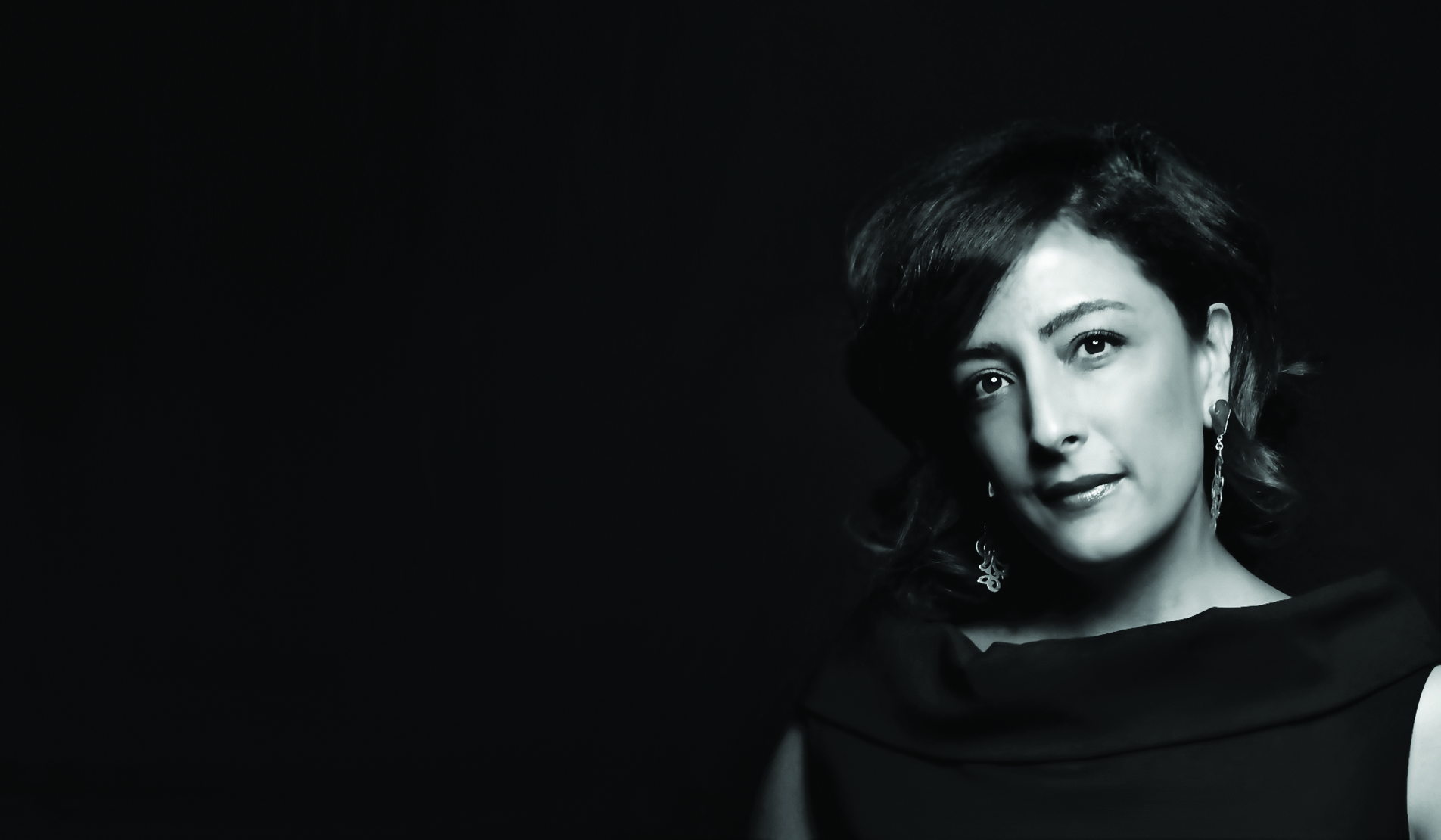
BY NAJWA NAJJAR
For 75 years now we have asked ourselves whether Palestinian cinema can or should be a form of resistance and survival, or whether it should be seen simply as art. Can, or indeed should, politics and art be separated?
Although Palestinian cinema has been part of the regional filmmaking industry from the very start, it has been during the last forty years where we have witnessed a surge of Palestinian filmmakers filming on location on their land, using Palestinian actors and actresses, and reclaiming a narrative that has been distorted and retold for various reasons, and by everyone but the Palestinians.
For decades the discourse on that narrative, and on resistance and survival in the Arab world, has been misrepresented and oversimplified, creating a skewed debate that overlooked both Arab and Palestinian perspectives, and the people involved.
It was precisely the rage I felt from the daily barrage, both in cinema and TV, of stereotypes and finger pointing, of whitewashing our history, of appropriating our lives – basically, the blatant manipulation of media - that triggered me. It made my decision that a film degree would give me some ammunition to find another voice.
Finding a voice was not so easy after years of seeing ourselves through the “other’s eyes.” Trying to find a way to tell our stories that have been silenced, breaking stereotypes, and yet facing repercussions for daring to present alternative narratives or sometimes the fear of repercussions leading to self-censorship, was not only a challenge but has blurred that line between politics and art.
Coming back to Palestine, and living in a No Man`s Land between Ramallah and Jerusalem, witnessing the daily violence, humiliation, grinding poverty, curfews, movement controls, assassination attempts, and the tit-for-tat suicide bombings, almost broke my spirit and soul - and challenged my faith in humanity. Trying to believe in every peace process—and seeing it wither away - made me question what happens when reason and hope diminishes, apathy increases, and consciousness almost go extinct. Will people’s will to resist and survive also diminish? What options lie in store?
The consequent lack of hope directly affected Palestinian daily life, pushing our society to further isolate itself, and the individual to regress into conservative traditionalism and religion. As the political climate continued to worsen, it became more difficult to see my surroundings with my own eyes. I looked at loss, displacement, anger and injustice through a camera lens.
In my films I searched for that hope, to breathe again despite the suffocating weight of frustration. The camera lens opened another world and allowed me to see the persistence, resilience, resistance and solidarity of Palestinians from another angle.
These stories, new images, and understandings helped me focus on our intimate stories, which continue despite the occupation, and to understand that these are an assertion of who we are. Our colours, song, dance, space and love .. are a continuation of our life, our narrative - despite all attempts to erase and/or distort. And this is precisely what makes cinema proactive, not reactive.. and quite frankly, entertaining as the focus is not on the accepted simplified version of Cowboys and Indians with no context.
Films rich in our narrative can bridge the widening gap in cultures and discourse, and can deepen the understanding of the present Palestinian story in ways that transcend the barriers of culture and language. Although it remains challenging to present a region in ways that confront its reduced portrayal, ultimately these films can create a hopeful world that no violence, hate or anger can destroy. A world of cinema which we can hear and see ourselves in our own voices and with our own eyes. Maybe then cinema can succeed where politics has failed?
Writer/Director Najwa Najjar has written, directed and produced more than a dozen critically acclaimed award-winning films that have premiered in Cairo, Berlin, Cannes, Locarno and Sundance. In 2020 she was invited to join the Academy of Motion Picture Arts and Sciences and in 2021 she was elected to the European Film Academy EFA. In 2021 Najjar was honoured for her work at the Aswan International Women’s Film Festival and at the Tiro Arts Festival in Lebanon.
With a Master’s Degree in Film (which she earned in the U.S.) she has been working in both documentary and fiction since 2000. Her critically acclaimed debut was the feature film POMEGRANATES AND MYRRH (2009) which premiered at Sundance, then screened at more than 60 festivals around the world including Rotterdam, Cairo and Goteborg, grabbing many awards along the way.
Her second award-winning film EYES OF A THIEF (2014) was selected for the Sundance Writer's Lab, and was the Palestinian nomination for the 2015 Oscars Best Foreign Film in addition to winning several prestigious writing and directing awards.
Her third feature film BETWEEN HEAVEN AND EARTH (2019) won the 41st Cairo IFF Naguib Mahfouz Best Screenplay award (and continues to reap more awards), and was selected for the European Film Academy Awards 2020, Golden Globes, Asia Pacific Screen Awards, and nominated for the Icelandic TV and Film Academy Awards.
Najjar is presently in the development of her 4th feature film, KISS OF A STRANGER, a musical.
Previous works include several award-winning films also shown worldwide (Berlin, Cannes, Locarno, Hamptons): YASMINE TUGHANI (2006), NAIM AND WADEE’A (2000), QUINTESSENCE OF OBLIVION (2001), BLUE GOLD (2004), A BOY CALLED MOHAMAD (2002), and THEY CAME FROM THE EAST which opened the 2004 European Academy Awards. Najjar also produced a collection of short films by international filmmakers called GAZA WINTER (2009). A speaker on numerous panels on cinema and a jury member of several international film festivals, she has given director and writer masterclasses, and has recently started giving workshops to emerging writers and directors. Najjar has reviewed books, and her articles on Palestinian cinema have been published. She has been a reader for the Rawi Sundance Lab for Arab scriptwriters and has been an advisor for the Rawi Sundance Scriptwriter’s Lab.